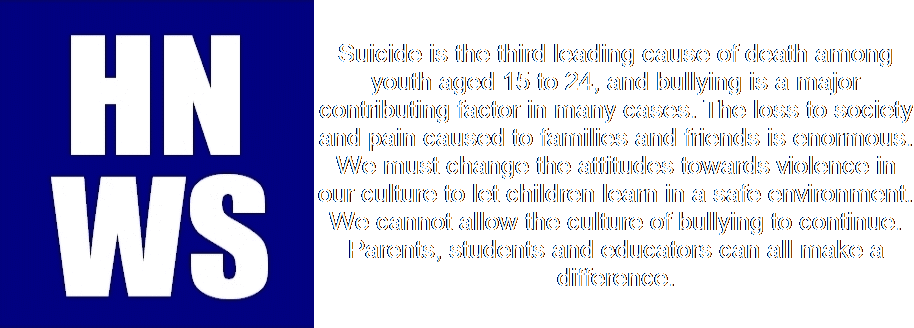If your child is participating a summer sports league, or attending camp or summer classes, check with the administrators, counselors or coaches about their bullying policy and especially their training and awareness levels. If you don't like what you hear, speak up about it, talk to other parents, demand the issue be attended to. If all else fails, perhaps consider another activity for the summer, somewhere where the adults are paying better attention. Your child will be under their supervision for a substantial period of time, so they need to know what they're doing when it comes to bullying.
While watching for signs of bullying isn't easy, it can be even tougher to get kids to open up and talk. One of the major difficulties suffered by victims of bullying and cyber harassment is dealing with their fears due to the culture of silence among students. Summer vacation doesn't cancel "the code". The largest roadblock to getting students to speak out about bullying is their mistrust of the adults in the school system and elsewhere. They commonly believe, as many of us did at that age, that talking about their torment will make things worse. As long as so many adults continue to deny there is a problem, fail to respond effectively, or even display and encourage bullying behaviour, can we really blame kids for not coming forward?
How to tell if your child is being bullied, a video from StopBullying.govIf your child is being cyberbullied, take steps immediately to make it stop. Let your child know you're there and listening, supporting them. If the bullying has progressed to threats and harassment, contact your local police. If the problem is centered on a social media site, the first step is to save all the harassing or threatening communications, photos and any identifying info possible. Even anonymous user names can be resolved to actual identities, and the police will need as much evidence as possible to intervene.
There are many professional groups and organizations out there willing to help. There are notice of harassment forms available on-line that may be helpful in the legal process. If your child has special needs, there is an excellent special needs anti-bullying toolkit available from The Bully Project to help you. Most social media sites also provide ways to report and block abusive users, you should ensure your child knows how to drop / block / report bullying on every site they frequent.
Stop, Block and Report Abuse
NeedHelpNow.ca Stop Bullies
Report bullying on Facebook
Report bullying on Twitter
Report bullying on MySpace
Report a video to YouTube
Report abuse to Bebo
Block and report harassment on Ask.fm.
Disable anonymous questions on Ask.fm and adjust privacy settings.
How to lock down your Facebook account for maximum privacy
There are all kinds of links like these and more to help you solve bullying issues available on our Parents' resource page to help you and your children have a safe and happy summer!
